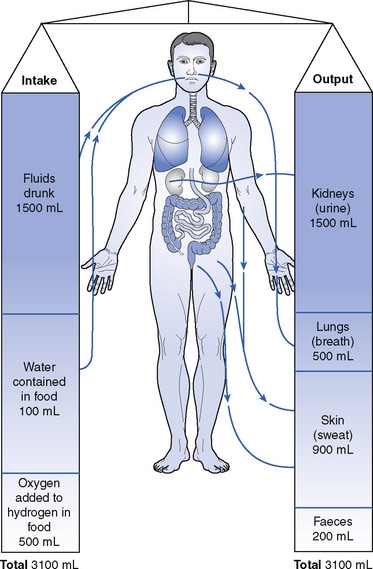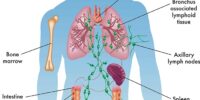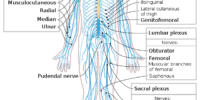Kidney Function And Fluid Balance Explained

Kidneys play a vital role in maintaining homeostasis within the body. They are responsible for filtering waste and excess fluids from the blood, regulating electrolyte balance, and producing hormones that help regulate blood pressure and red blood cell production.
Understanding kidney function and fluid balance is essential for maintaining optimal health and preventing kidney disease.
In this article, we will delve into the anatomy of the kidneys, the process of filtering waste and fluids through the nephron, the importance of electrolytes in kidney function, and the role of hormones in regulating fluid balance.
We will also discuss common kidney disorders and diseases, lifestyle changes that can improve kidney function, and when to seek medical attention for kidney issues.
By the end of this article, readers will have a comprehensive understanding of the importance of kidney function and fluid balance in overall health.
Key Takeaways
- Kidneys maintain homeostasis by filtering waste and excess fluids, regulating electrolyte balance, and producing hormones.
- Electrolytes and hormones play a crucial role in regulating fluid levels in the body to maintain homeostasis and prevent dehydration or overhydration.
- Proper hydration is essential for maintaining optimal health and preventing dehydration or overhydration.
- Lifestyle changes such as maintaining a healthy weight, staying hydrated, and avoiding tobacco and excessive alcohol consumption can help reduce the risk of kidney damage and disease.
The Anatomy of the Kidneys
The anatomical structure of the kidneys plays a crucial role in regulating fluid balance and maintaining overall bodily homeostasis, highlighting the significance of understanding their intricate organization.
The kidneys are two bean-shaped organs located on either side of the spine, just below the ribcage. Each kidney is approximately 11 cm long and 5-6 cm wide, and is made up of two main parts: the cortex and the medulla.
The cortex contains most of the functional units of the kidney, called nephrons, which filter and regulate the composition of blood.
The medulla, on the other hand, contains structures called pyramids that collect urine produced by the nephrons and transport it to the renal pelvis, which then leads to the ureter and eventually to the bladder.
The intricate network of blood vessels that supply the kidneys with oxygen and nutrients, and carry away waste products, further highlights the importance of their structure in maintaining proper kidney function and overall fluid balance.
The Nephron: Filtering Waste and Fluids
One of the key processes in maintaining homeostasis in the body involves the filtration of waste and excess fluids in the nephron. The nephron is the functional unit of the kidney responsible for filtering blood and producing urine. It is made up of several components including the glomerulus, proximal tubule, loop of Henle, distal tubule, and collecting ducts. Each of these components plays a crucial role in the filtration process.
The glomerulus is a network of capillaries where blood is filtered and waste products and excess fluids are removed. The proximal tubule reabsorbs important nutrients and ions that are necessary for the body, while the loop of Henle establishes an osmotic gradient that allows for the reabsorption of water and electrolytes. The distal tubule further adjusts the composition of the filtrate before it is sent to the collecting ducts, where the final concentration of urine is determined. The nephron’s ability to filter and regulate fluid balance is essential for maintaining overall health and preventing diseases related to electrolyte imbalances.
| Component | Function | Location |
|---|---|---|
| Glomerulus | Filters blood | In the renal cortex |
| Proximal tubule | Reabsorbs important nutrients and ions | In the renal cortex |
| Loop of Henle | Establishes an osmotic gradient for water and electrolyte reabsorption | In the medulla of the kidney |
The nephron’s ability to filter and regulate fluid balance is essential for maintaining overall health and preventing diseases related to electrolyte imbalances. Understanding the function of each component within the nephron is crucial in understanding how the kidneys work to maintain homeostasis in the body. Through this complex process of filtration and reabsorption, the nephron plays a vital role in regulating fluid balance, blood pressure, and electrolyte levels in the body.
Understanding Electrolytes
Understanding the role of electrolytes in the body is crucial for maintaining proper physiological function and preventing imbalances that can lead to serious health complications.
Electrolytes are ions that carry a positive or negative charge, and they play a vital role in regulating fluid balance, nerve and muscle function, and acid-base balance.
The main electrolytes in the body include sodium, potassium, chloride, calcium, magnesium, and phosphate. These electrolytes are found in various body fluids, including blood, urine, and sweat, and their concentrations must be carefully maintained within a narrow range for optimal health.
Electrolyte imbalances can occur due to factors such as dehydration, kidney disease, hormonal imbalances, and certain medications. Such imbalances can cause a range of symptoms, including muscle weakness, cramps, confusion, seizures, and irregular heart rhythms.
In severe cases, electrolyte imbalances can be life-threatening. Treatment for electrolyte imbalances typically involves correcting the underlying cause and administering electrolyte replacement therapy if necessary.
Overall, proper understanding of electrolytes and their role in the body is essential for maintaining good health and preventing serious complications.
The Role of Hormones in Fluid Balance
Hormones are crucial regulators of the body’s fluid levels, ensuring that the appropriate amount of water is retained or excreted to maintain homeostasis and prevent dehydration or overhydration.
One of the key hormones involved in fluid balance is antidiuretic hormone (ADH), also known as vasopressin. ADH is produced by the hypothalamus and released by the pituitary gland in response to increased blood osmolality or decreased blood volume. Its main action is to stimulate the kidneys to reabsorb water, which increases blood volume and decreases urine output.
Another hormone involved in fluid balance is aldosterone, which is produced by the adrenal gland. Aldosterone acts on the kidneys to increase the reabsorption of sodium and water, which leads to an increase in blood volume and blood pressure. It is released in response to low blood pressure or low blood sodium levels.
In addition, atrial natriuretic peptide (ANP), which is produced by the heart, has the opposite effect of aldosterone. ANP promotes the excretion of sodium and water by the kidneys, which decreases blood volume and blood pressure.
These hormones work together to maintain the delicate balance of fluid in the body and ensure that the appropriate amount of water is retained or excreted to maintain optimal health.
The Importance of Proper Hydration
Proper hydration is essential for maintaining optimal health and preventing dehydration or overhydration. The human body is composed of approximately 60% water, and water plays a crucial role in many bodily functions, including regulating body temperature, transporting nutrients, and removing waste products.
Inadequate hydration can lead to dehydration, which can cause symptoms such as fatigue, dizziness, and confusion. Conversely, overhydration can lead to hyponatremia, a condition in which the body’s sodium levels become dangerously low, which can cause seizures, coma, or even death.
To maintain proper hydration, it is recommended that individuals consume an adequate amount of fluids daily. The Institute of Medicine recommends that men consume approximately 3.7 liters (or about 13 cups) of fluids per day, while women should consume approximately 2.7 liters (or about 9 cups) of fluids per day. However, individual fluid needs can vary depending on factors such as age, sex, weight, physical activity level, and climate.
It is also important to note that not all fluids are created equal; while water is the most effective fluid for hydration, other beverages such as tea and coffee can also contribute to overall fluid intake. Additionally, consuming foods with high water content, such as fruits and vegetables, can also help maintain proper hydration levels.
Common Kidney Disorders and Diseases
One of the most prevalent health concerns worldwide involves the malfunction of a vital organ responsible for filtering blood and removing waste products, leading to a wide range of common kidney disorders and diseases.
The kidneys play a crucial role in regulating fluid and electrolyte balance, producing hormones that control blood pressure, and removing toxins from the body. However, when the kidneys fail to function properly, it can lead to a range of symptoms, including fatigue, swelling, and changes in urine output.
Some of the most common kidney disorders and diseases include chronic kidney disease (CKD), kidney stones, and urinary tract infections (UTIs).
CKD is a progressive condition in which the kidneys gradually lose their ability to filter waste products from the blood. Kidney stones are hard deposits that form in the kidneys and can cause severe pain when they pass through the urinary tract. UTIs occur when bacteria enter the urinary system and cause inflammation and infection.
While these conditions can be managed with proper treatment, they can lead to serious complications if left untreated. It is important to seek medical attention if you experience any symptoms of kidney dysfunction.
Lifestyle Changes for Optimal Kidney Function
Maintaining a healthy lifestyle is crucial for optimal kidney health and can help prevent the development of common kidney disorders and diseases. Lifestyle changes such as maintaining a healthy weight, staying hydrated, and avoiding tobacco and excessive alcohol consumption can help reduce the risk of kidney damage and disease. Additionally, it is important to control blood pressure and blood sugar levels through regular exercise and a balanced diet.
A healthy diet for optimal kidney function should include foods that are low in sodium, phosphorus, and potassium. The following table provides a list of foods that are recommended and those that should be avoided for people with kidney disease. It is important to consult with a healthcare provider or a registered dietitian for personalized dietary recommendations based on individual needs and health status.
| Recommended Foods | Foods to Avoid |
|---|---|
| Fresh fruits and vegetables | Processed meats (bacon, sausage, deli meat) |
| Lean proteins (chicken, fish, eggs) | High sodium foods (canned soups, fast food) |
| Whole grains | High potassium foods (bananas, oranges, potatoes) |
| Low-fat dairy products | High phosphorus foods (dairy, beans, nuts) |
Seeking Medical Attention for Kidney Issues
In order to maintain optimal kidney function, lifestyle changes can be implemented such as healthy eating habits and regular exercise. However, when symptoms of kidney issues persist, it is important to seek medical attention.
This is because kidney problems can lead to serious health complications if left untreated. If you experience symptoms such as frequent urination, blood in the urine, swelling in the feet and ankles, or persistent fatigue, it is important to consult with a healthcare professional.
A doctor can perform tests to determine the cause of these symptoms and provide appropriate treatment. Early detection and treatment of kidney issues can prevent further damage to the kidneys and improve overall health outcomes. Therefore, seeking medical attention is crucial for individuals experiencing symptoms of kidney problems.
Conclusion
The kidneys play a vital role in maintaining fluid balance and filtering waste from the body through the nephron.
Electrolytes, such as sodium and potassium, are regulated by the kidneys to ensure proper function of the body’s cells.
Hormones such as aldosterone and antidiuretic hormone also play a crucial role in regulating fluid balance.
Proper hydration is essential for optimal kidney function, as dehydration can lead to kidney damage.
Common kidney disorders include kidney stones, infections, and chronic kidney disease.
Lifestyle changes such as maintaining a healthy diet, exercising regularly, and avoiding smoking and excessive alcohol consumption can help improve kidney function.
Seeking medical attention for kidney issues is crucial to prevent further damage and maintain overall health.
Understanding kidney function and fluid balance can help individuals take proactive steps to maintain their kidney health.









